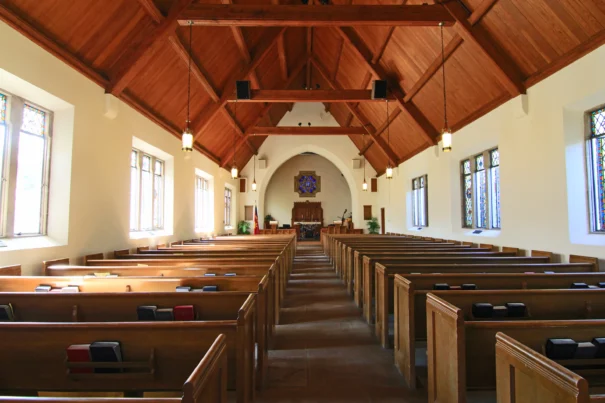
Photo by Debby Hudson
On Wednesday, June 12th, the Southern Baptist Convention voted on a controversial amendment to their constitution — one that would formally ban women from pastoral roles in all affiliated churches. This amendment failed, narrowly missing the 2/3rds supermajority needed by only receiving 61% of the vote. While this measure may have failed, its sheer existence signals further polarization and politicization of the church, as well as exposes a brutal reality for women still affiliated with the convention.
While many within and outside the church see this vote as a victory for women, it is less substantive and more symbolic than it may appear. The Southern Baptist Convention’s (SBC) constitution already states that the office of pastor is “limited to men as qualified by the Scripture.” The newly rejected amendment would further affirm the ban on women in pastoral roles by clarifying that women are strictly prohibited from acting as pastors in any capacity, including as associates.
Even without the failed amendment, the wording in the SBC’s constitution gives the convention the power to oust churches that employ women in pastoral roles; however, the amendment to officially ban women would have increased the power of the SBC to expel these churches.
Many SBC-affiliated churches threatened to pull out of the convention if the ban on women passed, worried about the consequences of the amendment on women within their church. What effect the amendment would have caused and how the current wording of the constitution will be enforced is still up for debate. Hundreds of churches with the SBC have women in ministry positions, especially as women’s ministry and children’s ministry directors.
For 83% of women’s ministries across the country, the women holding leadership positions are either unpaid staff or serve as volunteers. During discussions of the ban, many raised questions on if these roles would be considered pastoral and be banned. It seems to come down to an issue of semantics. While the title of pastor or overseer can only be held by a man, the title of director or minister has no constitutional definition or restrictions. Regardless of the semantic difference, many within the SBC worried that a ban on women as pastors would lead to other women serving in church leadership being targeted.
The issue of semantics is a much larger problem for some in the SBC than others. The National African American Fellowship, a group of predominantly black churches within the SBC, was especially concerned about the vote since many of their churches employ women as assistant pastors for various ministries.
Questions about the amendment’s wording are further complicated by churches that perform services in various languages. For example, Hispanic and Chinese Baptist churches refer to women in church leadership as titles that can be loosely translated to pastor. In Spanish, pastors’ wives are frequently called “pastora,” even if they have no role in the ministry.
Examining the many uncertainties around the amendment, including pushback from churches employing women, women volunteering as ministers, and multi-cultural churches, it is unclear why it was proposed. However, other votes proposed at the conference show the increasing politicization and polarization of the convention. SBC is vocally anti-LGBT and pro-life. At this week’s convention, they even voted to oppose the use of IVF among their members, echoing Alabama’s Supreme Court decision.
While not officially affiliated with the Republican Party, the SBC does not attempt to hide its bias. Trump spoke virtually at an event hosted by a third-party nearby the convention, which SBC leaders and members attended. Former Vice President Pence was also invited to speak and participated in a luncheon at the conference.
The SBC, while consistently conservative, has become more and more political. This has driven away many members, both individuals and entire congregations. Membership has declined since 2006 and is now below 13 million members, the lowest since 1976.
Many moderates are leaving the church, leaving fundamentalists behind who support conservative measures within the convention. This creates a positive feedback loop, exacerbating the church’s politicization and polarization, leading to amendments like those to ban women in patronal roles and oppose IVF. As the country itself continues to polarize, so will influential institutions like churches until they contain only the most far-right members of their congregations.